Ukraine hoped that Western countries would approve the idea of creating a special tribunal for the so-called “crime of aggression” by Russia, but it was refused in The Hague.
Supporters of this ideas they say that such a tribunal is the only way to personally bring Vladimir Putin and top officials of the Russian Federation to justice. But does it make sense?
the main problem
“President Putin’s decision to strike at Ukraine is a serious challenge to the post-1945 international order. Putin has tried to replace the principles of self-determination for peoples and the rule of law with the use of force. The whole world should know about the act of aggression that he provoked and the atrocities that “He organized. To help repel President Putin’s nefarious attempts to destroy peace in Europe, it’s time for us to set up a special tribunal.”
This is a quote from an open letters, which was made up of 40 well-known lawyers and politicians from different countries. Representatives of the Ukrainian delegation, which went on a tour of North America, and also visited Paris, Berlin and London, are saying the same thing, trying to convince Western countries to take part in the creation of an international tribunal, the authors of the message quote BBC.
Maria Mezentseva, the head of this delegation, told the publication after meetings in London: “We call on our partners around the world to join the initiative to create a special court or so-called special tribunal – a platform for holding Russia’s top leadership accountable. This is both Putin and the Security Council – that is, up to 20 people of top officials, politicians, military men who planned, carried out and gave orders regarding criminal aggression.”
Aggression in this context is not just some big word, but a very specific crime. The UN defines aggression as the use of armed force by a state against the sovereignty, territorial integrity or political independence of another state. “At one time, the Nuremberg Tribunal emphasized that aggression is the main evil. It is aggression that opens the gates of hell. And aggression, unlike other crimes, absorbs all the evils of war. It is war that is the main crime,” says Gleb Bogush, specialist in International Criminal Law from the University of Copenhagen.
War crimes, unlike aggression, are committed in wars by both sides – the parties to an armed conflict must obey the same rules, and it does not matter who is defending and who is the aggressor. “For example, war crimes committed by Russian or Ukrainian servicemen have the same legal content,” says Gleb Bogush. “But you need to understand the reason for this. If there had been no aggression, these crimes would not have happened. Yes, they themselves deserve serious investigation and punishment, but all this would not have taken place if it were not for what happened in 2014 and developed in 2022, namely, aggression.”
There is only one problem – at the moment there is simply no one to investigate Russian aggression. Besides, it takes money, and a lot of it. Ukraine, of course, can find sponsors for this, but how much are they willing to pay for it?
Leadership Crime
Ukraine expects to achieve justice in several instances. The first is the International Court of Justice in The Hague. Ukraine applied there two days after the start of the war, on February 26. The lawsuit was formulated in an unusual way: Russia, according to Ukraine, illegally justified its invasion with false claims about the “genocide” of the Russian-speaking population of Donbass.
The International Court of Justice, established in 1946 to resolve disputes between states, can hear cases relating to international treaties to which the parties are parties. Russia recognizes the jurisdiction of the International Court of Justice in The Hague over disputes over the application and interpretation of the Convention on the Prevention of the Crime of Genocide.
Decisions of the International Court of Justice are binding and cannot be appealed. There is one problem – court there are no tools to get states to enforce decisions. The result is obvious – the war has been going on for more than ten months.
The second option is the International Criminal Court, which is also located in The Hague. The ICC has already initiated an investigation into war crimes committed in Ukraine, starting in 2014.
This summer, the ICC turned 20 years old. During these two decades, the court has been investigating the most serious crimes in the world – genocide, crimes against humanity, war crimes and crimes of aggression. One of the main advantages of the International Criminal Court is that no one has immunity to it, including heads of state. But, perhaps, the main disadvantage of the ICC is that it cannot investigate the crime of aggression if both parties to the conflict are not parties to the Rome Statute, the document that formed the basis of this body. Neither Russia nor Ukraine has ratified the Rome Statute.
The only way to organize such proceedings before the ICC is to obtain the consent of the UN Security Council. But Russia has a veto there. Russia, as one of the founders of the UN, is permanent member of the UN Security Council and veto the decision. In addition, Russia has another ally, a permanent member of the Security Council – China, which is unlikely to vote for punishing Russia, realizing that in this case it will be next in line.
However, there is such a possibility that the US and its allies may ignore this veto, then… The UN, as an international structure, will actually lose its legitimacy.
It turns out that, despite the general understanding of the gravity of the crime of aggression, there are no ready-made tools to accuse the Russian leadership of unleashing the war. International law specialist Gleb Bogush adds: “The crime of aggression is a crime of leadership. The leaders of the state who made the decision to carry out an armed attack become the main accused for aggression. Since the Security Council is paralyzed due to Russia’s veto, the tribunal is called upon to close the existing gap and supplement the ICC” .
The power of immunity
One of the problems that an international tribunal will face is the issue of personal immunity. In international law, heads and senior officials of states are immune from prosecution – everywhere except the International Criminal Court, which in this case cannot investigate the crime of aggression. So on what basis will the tribunal investigate the actions of Vladimir Putin?
There are two answers to this question. One – from the field of law, the second – from the field of legal realism, as the Americans say. With legal realism, everything is simple: in reality, most likely, any tribunal created to investigate the crime of aggression will decide that suspects do not have immunity. As far as the field of law is concerned, the answer is not so obvious.
One of the supporters of the creation of the tribunal, Larry Johnson, who worked as the UN Assistant Secretary General for Legal Affairs, is sure that the tribunal “will clearly be able to break through the veil of immunity of the head of state.” In order for this to become a reality, the UN General Assembly must vote with an overwhelming majority, Johnson said. The professional community has been arguing for several months about how many votes will be enough to create a tribunal. Professor Kevin Jon Heller believes that at least two-thirds of the General Assembly should vote for the resolution.
“Such a resolution can only be passed by the vast majority of states that represent all corners of the globe. And I get terribly worried when I see scientists or NGOs who say: “Oh, enough 60 countries (out of 193). Or just for the resolution to pass. “I think we should think not only about the desire to hold Putin accountable, but also about the precedent that such a decision can create,” says Heller.
Other countries cannot help thinking about the legal and political consequences that could result from the creation of a tribunal with the right to deprive any leader of a state of personal immunity by the votes of only 50-60 countries in the General Assembly. But this does not take into account the right of veto from the permanent members of the Security Council… A vicious circle.
Bad idea?
Kevin Jon Heller, professor of international law at the Center for Military Studies at the University of Copenhagen, says he agrees with his colleagues’ desire to end this war and hold those responsible for it personally accountable. But Heller would not have signed an open letter calling for the creation of a tribunal. “I believe that Putin and many other high-ranking Russian political and military leaders have committed the crime of aggression. But I believe that a special tribunal is a bad idea,” says Professor Heller.
Before the advent of the International Criminal Court, tribunals were the way to investigate war crimes. Most often, it was a complex process in terms of organization, on which a lot of money was spent. But the tribunals did not die with the creation of the ICC. For example, in 2003, the UN and the government of Sierra Leone created a special court that dealt with crimes committed during the civil war, and almost 10 years later, former Liberian President Charles Taylor was convicted for these crimes. And after the ICC convicted and actually executed Slobodan Milosevic, he was acquitted.
And finally, there is another, probably no less important reason in this matter – a similar initiative can be applied to other countries as well. As the old joke says:The main thing during the investigation don’t go out on themselves myself… “. After all, the trial of Russia can also become a pretext for a war in Iraq, Afghanistan, Libya and even … Vietnam. The number of war crimes for which NATO countries that participated in these wars can be implicated is simply enormous, and, as you know, no one has been punished.
the main problem
The biggest problem any international tribunal will face is it is a question of the extradition of the defendants. International Criminal Court does not make judgments in absentia. This means that in order to be tried, the defendant must be physically imprisoned in The Hague. As long as the current regime is strong in Russia, an effective investigation and sentencing of high-ranking officials is hardly possible.
For example: an attempt by the ICC prosecute the US for war crimes failed in Afghanistan. What’s more, sanctions have been imposed on ICC Chief Prosecutor Fatou Bensouda, who has made great efforts to get US military personnel on the list of possible participants in war crimes in Afghanistan. Not only against her, but also against other members of the ICC, and they also had their US visas revoked.
After the United States promised to stop funding the ICC, the case was completely closed.
“If prosecutors (ICC. – Ed.) are indeed closing the investigation into American involvement in Afghanistan, which suggests that the tactics of delaying and putting pressure on the ICC are bearing fruit. Former US officials and those who worked for them will continue to enjoy impunity. This message will be understood by other war criminals who will see that the American scenario is working,” Catherine Gallagher was quoted by the website of the human rights organization. Journalists for Justice (“Journalists for Justice”), writes the publication D.W.
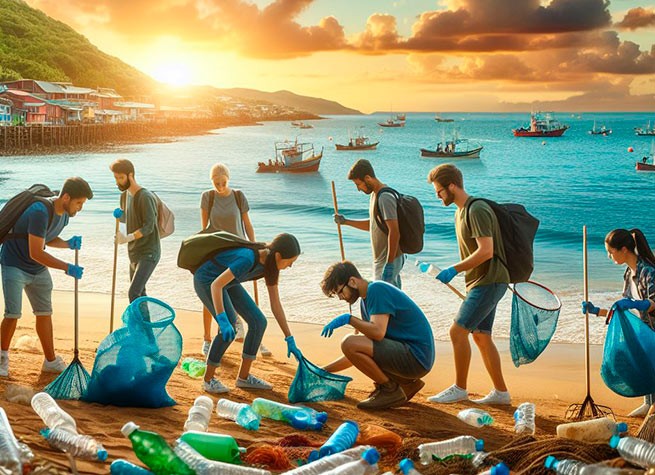
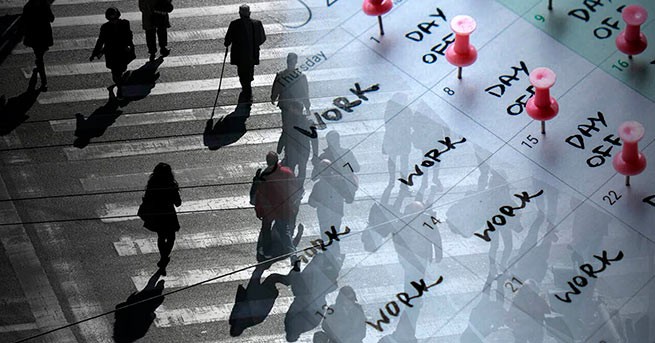

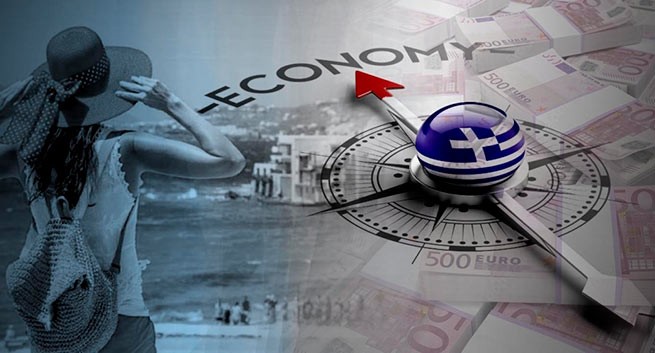
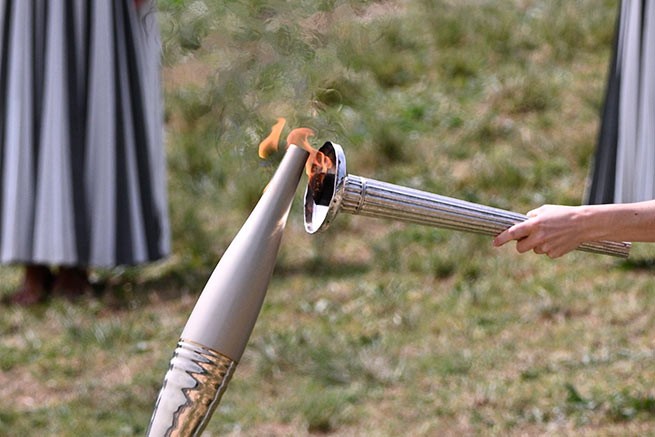
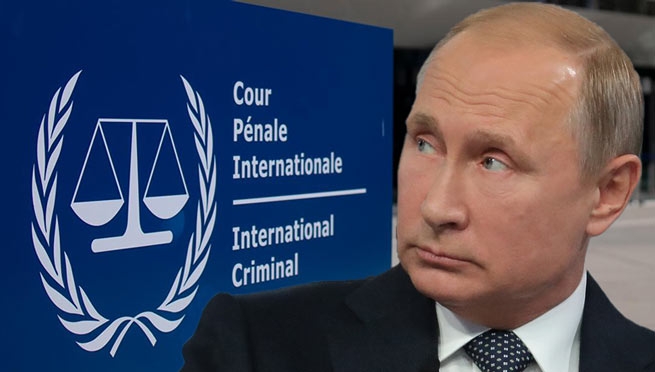

More Stories
Ukraine is at war with Russia using Chinese drones
"Gift from heaven" – one and a half ton bomb "lost" over Donetsk region
The United States is ready to provide billions of euros to Ukraine, secured by income from Russian assets